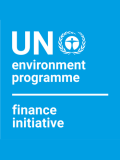
Public policy and financial support are urgently required to align two of the countries largest CO2-emitting industrial sectors with long-term, low-carbon pathways.

Matt Homewood is an award-winning food waste campaigner on a mission to end supermarket food waste in Denmark and beyond.

This short piece talks about the importance of gender quality and inclusion in the path towards a health planet for all. The Stockholm +50 represents an opportunity to harness individual resources and provide pathways for placing gender equality at the centre of global environmental actions for the years to come.
Tools and Initiatives

Circular economy strategies will be crucial for cities looking to scale their impact and reach net zero. While going circular in a linear world can be challenging, the Circle Carbon Scan can help cities link material use to emissions for any sector, pinpointing exactly where change-makers should focus their attention.
Tools and Initiatives

The joint project ‘A Legal Framework for Impact’ led by PRI, the Generation Foundation and UNEP FI explores how the global investment sector could strengthen its response to ESG issues by pursuing positive sustainability impact in the real economy. It looks at sustainability factors not merely from a risk-return perspective but rather emphasizes the need to utilize capital allocation, stewardship and policy engagement to steer investee enterprises towards increasing positive sustainability outcomes and decreasing activities that have a negative impact on our environment and society.

This short piece by Najib Saab discusses the "polluter pays" principle. International environmental law today incorporates the principle that whoever causes pollution and waste of natural resources bears responsibility for the damages, and therefore must pay the price. Still, the application of this principle still poses a problem in international law as countries act on it within their own sovereign borders and thus, the implementation differs. Therefore, international law must impose a standard than can uphold this important principle.

Stockholm+50 is a crucial opportunity to commemorate the 1972 Stockholm Declaration and chart a common path for the next 50 years of environmental multilateralism. This time, however, indigenous people, particularly our youth, must be included in the conversation and our voices heard.
Research

Conflict can be an obstacle to climate action, impeding investments needed for adaptation and mitigation. Yet to date, there has been little cross-fertilization between climate finance and peacebuilding. Platforms for climate finance and peace and security could support exchange and innovation, help mainstream climate and peace priorities in funds’ country-level programs, and set goalposts for project development.
Tools and Initiatives

Since the launch of its Sustainable Finance Roadmap in 2020, Mexico's financial system has established a clear institutional framework to foster its sustainable finance agenda, sending a clear message to market participants on the road ahead.

We are told that moving towards a green economy is too expensive, while we see trillions of dollars spent to prop up business-as-usual.
